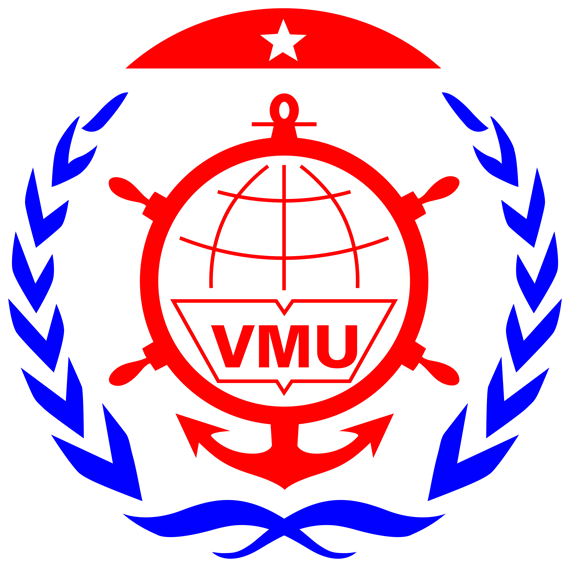1. Introduction
|
Program title: |
Bachelor of Information Technology |
|
Graduation degree: |
Bachelor's degree |
|
Study model: |
Full-time |
|
Total credits: |
132 |
|
Used language: |
Vietnamese |
|
Training duration: |
4 years (8 semesters) |
|
Responsible Faculty: |
Faculty of Information Technology |
|
Website: |
|
|
Address: |
Room 301, 3rd floor A4 Building, Vietnam Maritime University 484 Lach Tray - Le Chan - Hai Phong |
The Information Technology training program at Vietnam Maritime University, designed by the Faculty of Information Technology, draws upon programs from various esteemed domestic and international universities. Regularly updated to align with industry needs and adhere to the Ministry of Education & Training and Vietnam Maritime University regulations, the program equips learners with essential knowledge, skills, and attitudes. It meets the Vietnamese National Qualifications Framework and international standards, preparing graduates to excel in the 21st-century workforce. Graduates of the program earn a bachelor's degree in Information Technology, with the ability to design, implement, and operate IT systems. They are dynamic, creative, and adaptable, ready to compete in the Asia-Pacific region and contribute to national development and international integration. Graduates are qualified for roles such as programmers, software engineers, data analysts, artificial intelligence specialists, system and network administrators, information security specialists, IT project managers, UX/UI specialists, game developers, digital marketers, and training and scientific research specialists. These roles encompass tasks ranging from software development, data analysis, AI deployment, system maintenance, cybersecurity, project management, UI/UX design, game development, digital marketing strategies, to IT training and research. The program ensures that graduates are well-equipped to meet societal IT application needs and excel in their respective fields.
The Bachelor of Information Technology program at Vietnam Maritime University offers a comprehensive education that prepares students for successful careers in the IT industry. With a focus on both theoretical knowledge and practical skills, graduates are well-equipped to meet the challenges of the modern technological landscape.
2. Curriculum
The Bachelor of Information Technology program is organized into 8 semesters as follows:
Throughout eight semesters, students undertake a comprehensive curriculum that combines theoretical and practical learning.
In Semester I, students gain foundational knowledge and skills through Algebra, which emphasizes problem-solving, and Discrete Mathematics, focusing on logic and graphs vital for computer science. Introduction to Information Technology offers insights into computer basics, while General Law covers the importance of laws in daily life. Computer Architecture and Peripherals provide an understanding of hardware systems. Elective courses include MS Office Suite for software proficiency, Basic English 1 for language enhancement, and Soft Skills 1 to build communication and teamwork abilities.
Semester II broadens students' knowledge with 6 required subjects: Marxist-Leninist Philosophy, which provides fundamental knowledge about worldview, human outlook, and the methodology of Marxist-Leninist philosophy; Calculus, which equips students with tools for multivariable differential calculus, double integrals, multiple integrals, line integrals, and differential equations to solve technical problems; C Programming Techniques, which offers basic knowledge of programming languages in general and C programming in particular; Database Fundamentals, which covers database concepts and the relational database model; Computer Networks, which provides fundamental knowledge of computer networks, including the OSI model-a reference model from ISO for open system interconnection, information systems, and network connection devices; Introduction to Software Engineering, which introduces students to software models and development processes. Elective courses include Basic English 2, which, combined with Basic English 1 and Basic English 3, is designed to meet the foreign language learning outcomes of the training program; Operating System Principles, which provides learners with fundamental knowledge of computer operating systems.
Semester III delves deeper into specialized courses such as Probability and Statistics, which develops data analysis skills; Data Structures and Algorithms focusing on data organization and Windows Programming providing application development experience; Object-Oriented Programming emphasizing modular coding, and Core Java introducing robust programming practices. Python Programming and Advanced Python Programming are elective courses that hone programming skills.
Semester IV explores advanced subjects like Graph Theory, which focuses on mathematical graph applications; Information Security and Privacy addressing data protection; Object-Oriented Systems Analysis concentrating on system design; Microprocessor Engineering delving into hardware functionality; and Basic English 3 strengthening language skills. Elective courses include IT Project Management and Network Programming.
In Semester V, students study Developing Applications with Databases, and Mobile Device Programming to enhance their understanding of database systems and mobile app creation. Web-Based Application Development teaches web design, and Artificial Intelligence introduces AI concepts. An IT internship provides practical industry experience. Semi-Structured Data Representation and DevOps Deployment are Elective courses that enhance students' technical expertise.
Semester VI focuses on specialized topics like the Embedded Systems, which integrates hardware and software design. Image Processing teaches digital image analysis techniques, and E-Commerce covers online business models. Open-Source Application Development encourages innovative solutions. Elective courses include Robots and Intelligent Systems, Software Testing offer additional expertise and Network Design and Administration.
Semester VII emphasizes cutting-edge technologies. Required courses include User Interface Design (UI/UX) covering intuitive interface creation; Computer Vision and Internet of Things Technology exploring data interpretation and smart device management. Deep Learning Techniques and System Integration Projects provide advanced knowledge and hands-on experience. Elective courses include Big Data Processing, Cyber Security, and Cloud Computing.
In the final semester, students consolidate their learning through practical applications. The Graduation Internship immerses them in real-world challenges, and the Graduation Project showcases their ability to integrate and apply knowledge from previous semesters.
